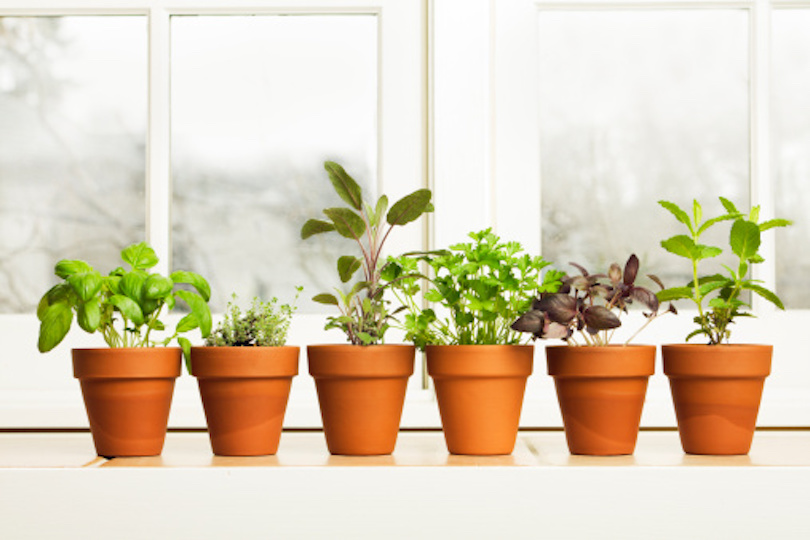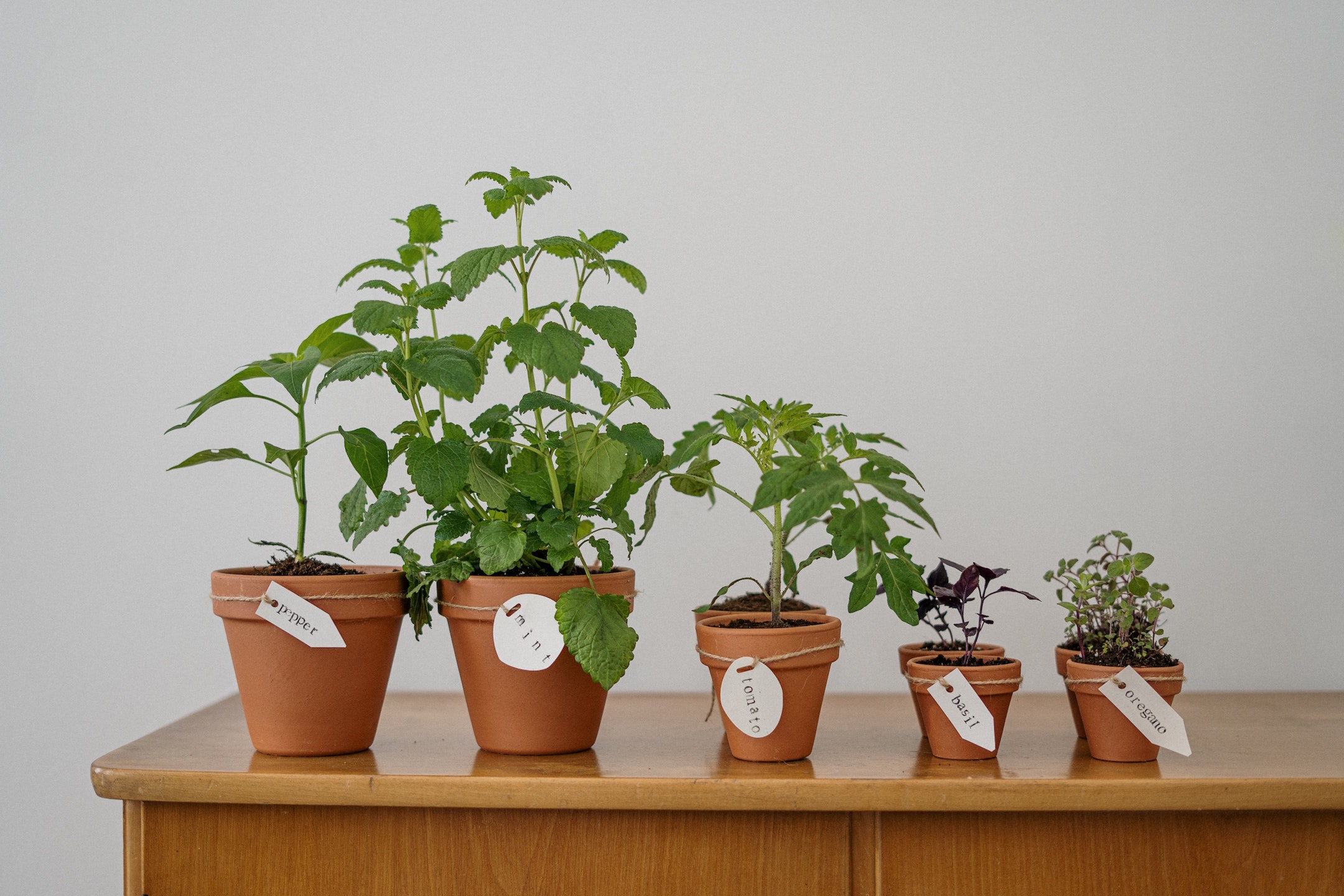The Easiest Way to Grow Herbs all Year Long
Container gardening is one of the easiest methods for growing herbs. Not only can you move the pots around to catch sunlight or give them a bit of shade, but you also have easy access to all your kitchen herbs right outside your backdoor. If you are in the middle of preparing dinner and realize that that spaghetti sauce needs a hint of fresh basil, you can simply step outside and cut a few leaves.




